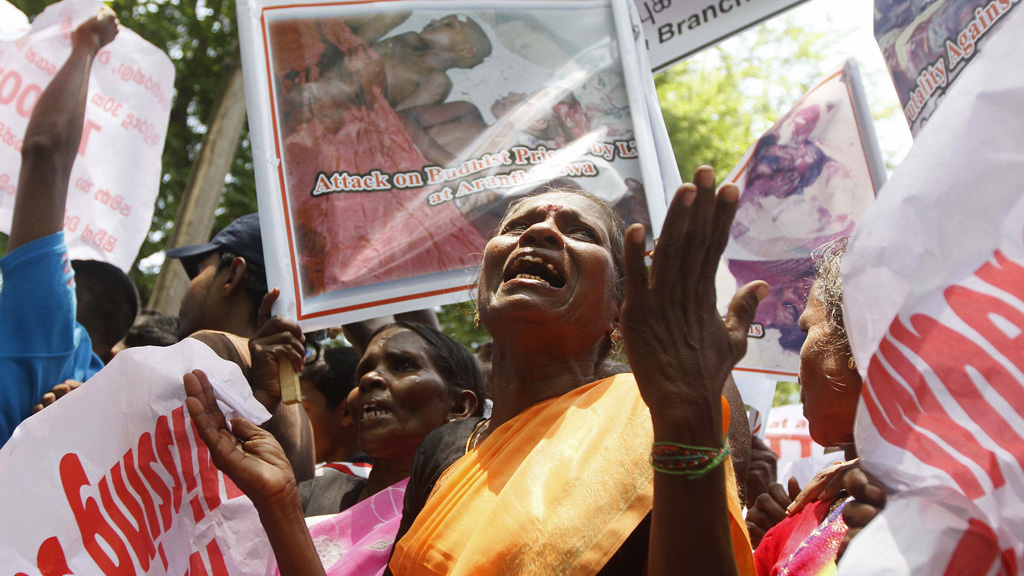UN human rights chief criticises “authoritarian” Sri Lanka
Navi Pillay says the south Asian island nation is heading “in an authoritarian” direction four years after the end of its bloody civil war.

The UN human rights commissioner has visited former war zones as part of a controversial fact-finding mission to assess Sri Lanka’s progress following the end of the 26-year struggle with Tamil Tiger separatists.
A UN panel has said it has “credible allegations” that both the Tigers and forces of the Sinhalese-dominated government committed atrocities and war crimes during the conflict, but singled out the government for most of the blame.
Read more: Sri Lanka's Killing Fields
Sri Lankan President Mahinda Rajapaksa told Ms Pillay that his people believe the UN is biased against them, and a report she is due to release next month has already prejudged the country.
Ms Pillay told a news conference: “I’m deeply concerned that Sri Lanka, despite the opportunity provided by the end of the war to construct a new vibrant, all-embracing state, is showing signs of heading in an increasingly authoritarian direction.”
She added that she was concerned about the continued military presence in the country’s Northern and Eastern Provinces, saying: “I urge the government to speed up its efforts to demilitarise these two war affected provinces as the continued large scale presence of the military and other security forces is seen as many as oppressive and intrusive, with the continuing high level of surveillance of former combatants and returnees at times verging on harassment.
“This type of surveillance and harassment appears to be getting worse in Sri Lanka, which is a country where critical voices are quite often attacked or even presently silenced.
“Utterly unacceptable any time, it is particularly extraordinary for such treatment to be meted out during a visit by a UN high commissioner for human rights.
“I wish to stress that the United Nations take the issue of reprisal against people because they have talked to UN officials as an extremely serious matter and I will be reporting those that take place in connection with this visit to human rights council.”
UN resolutions have urged Sri Lanka to carry out credible investigations into killings and disappearances during the civil war, especially in the final stages.
The government has strongly rejected the accusations of rights abuses, but Mr Rajapaksa last month ordered an inquiry into mass disappearances.